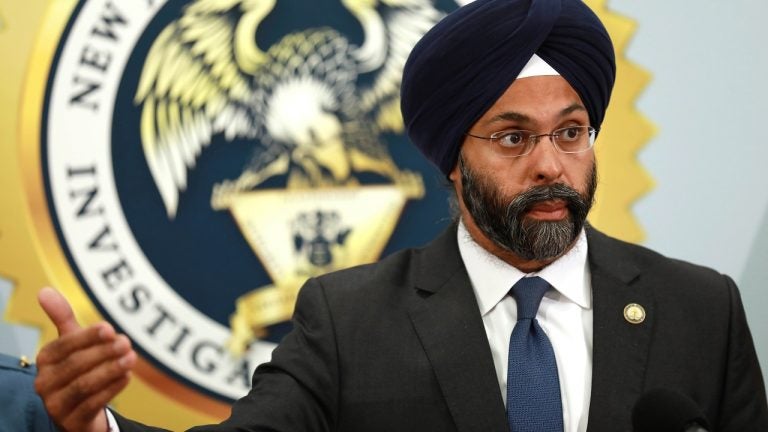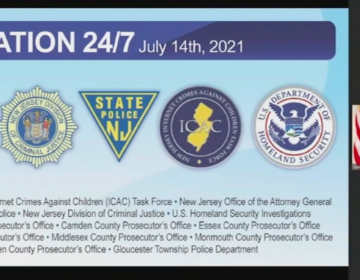N.J. to waive minimum terms for non-violent drug cases
Attorney General Gurbir Grewal said the mandatory terms were “outdated policy,” which was hurting residents and disproportionately affecting young men of color.

New Jersey Attorney General Gurbir Grewal. (Office of the Attorney General/Tim Larsen)
New Jersey prosecutors must waive mandatory minimum prison terms for non-violent drug offenses, the state attorney general said Monday in a new directive.
Attorney General Gurbir Grewal said the mandatory terms were “outdated policy,” which was hurting residents and disproportionately affecting young men of color.
“We can wait no longer. It’s time to act,” Grewal said.
The decision comes after a state Criminal Sentencing and Disposition Commission called for the elimination of the minimum sentences for non-violent drug offenses in 2019, the same year Grewal himself wrote an op-ed decrying them. All 21 of the state’s county prosecutors have also signed a letter supporting the change. Democratic Gov. Phil Murphy applauded the new directive in a statement.
The change means that the imposition of mandatory minimum sentences will be “off the table” for current and future non-violent drug offenders, and it allows those currently serving such sentences a chance for early release.
Grewal put the directive in the context of the state’s racially disproportionate prison population, saying that the mandatory minimums contributed to stark racial disparities. Black residents account for 14% of the state’s nearly 9 million residents, but make up 61% of the inmates population, according to the sentencing commission.
State law requires a sentencing judge to impose longer periods of parole ineligibility for dozens of state crimes, including — before Monday — non-violent drug offenses. The mandatory minimum sentences depend on the offense and are a percentage of the total sentence, going from 33% to 85%. Those sentenced for those crimes must serve the parole ineligibility period in prison.
Grewal said existing state law grants prosecutors the authority to waive the mandatory minimum terms.
Prosecutors can, however, still seek longer prison terms in certain non-violent drug cases, depending on the circumstances involved, Grewal added.
The change also comes after the state voted by a 2-to-1 margin to permit a recreational marijuana market for those 21 and older.
New law enacted in February means it’s no longer a violation to have 6 ounces (170 grams) or less of marijuana or about three-fifths of an ounce (17 grams) of hashish. It’s not a crime any longer to be under the influence of marijuana or hashish, or to possess marijuana paraphernalia or to be in possession of it while operating a car, though there are laws against driving under the influence of drugs.
WHYY is your source for fact-based, in-depth journalism and information. As a nonprofit organization, we rely on financial support from readers like you. Please give today.





